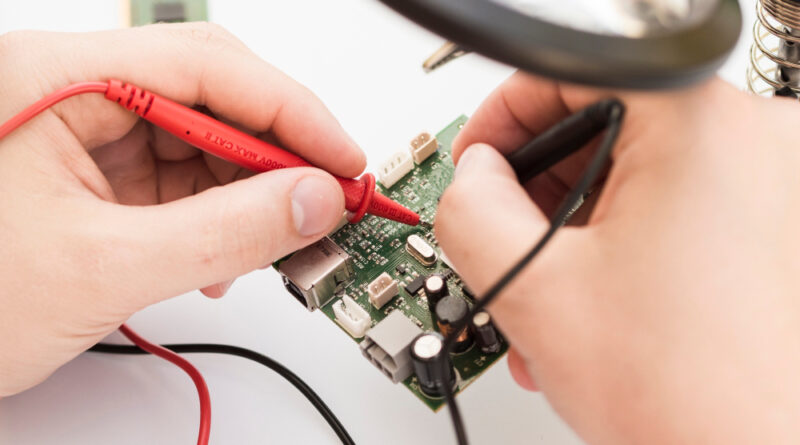Electrical Testing in Ghaziabad
Introduction
When it comes to electrical systems, safety is paramount. Whether it’s your home, office, or any other establishment, ensuring the efficiency and safety of electrical installations is crucial. Electrical testing plays a vital role in achieving this goal. In Ghaziabad, where rapid urbanization is driving the demand for electricity, understanding the significance of electrical testing is more critical than ever.
In this article, we’ll delve deep into the world of electrical testing in Ghaziabad. From exploring its importance to understanding the process and benefits, we’ve got you covered. So, let’s begin our journey to better electrical safety and efficiency!
Electrical Testing in Ghaziabad: An Overview
In this section, we’ll provide a comprehensive overview of electrical testing and its relevance in Ghaziabad.
What is Electrical Testing?
Electrical testing is a meticulous and systematic examination of electrical systems and equipment to assess their performance, safety, and compliance with regulatory standards. It involves a series of tests conducted by qualified professionals to identify potential issues and ensure the integrity of the electrical infrastructure.
The Significance of Electrical Testing in Ghaziabad
In Ghaziabad, with the surge in electricity consumption, proper electrical testing becomes a necessity. It helps in:
- Enhancing Safety: Electrical testing ensures that electrical installations are safe, minimizing the risk of electrical accidents and hazards like electrical fires.
- Improving Efficiency: By identifying and rectifying faults, electrical testing optimizes the performance of electrical systems, leading to energy efficiency and cost savings.
- Complying with Regulations: Electrical testing ensures that electrical setups meet local safety codes and legal requirements, preventing legal penalties.
- Preventing Downtime: Regular testing and maintenance prevent unexpected breakdowns, reducing downtime and operational disruptions.
The Electrical Testing Process
To maintain electrical safety and efficiency, the electrical testing process consists of several essential steps:
1. Visual Inspection
The process starts with a visual examination of the electrical components, looking for visible signs of wear, damage, or improper installation.
2. Circuit Testing
Professionals use specialized equipment to test circuits, ensuring proper connections and identifying any irregularities.
3. Load Testing
Load testing assesses how electrical systems perform under varying loads, helping identify potential issues under heavy usage conditions.
4. Earth Ground Testing
This test measures the electrical resistance of the earth ground system, essential for safeguarding against electrical shocks.
5. Insulation Resistance Test
The insulation resistance test detects insulation problems in cables and equipment, crucial for preventing short circuits.
6. RCD Testing
Residual Current Devices (RCD) testing ensures that these safety devices activate promptly in case of electrical faults.
7. Thermal Imaging
Thermal imaging identifies overheating components, which can indicate potential hazards.
8. Certification and Documentation
After completion, the testing is documented, and a certificate of compliance is issued, ensuring adherence to regulations.
The Benefits of Electrical Testing
Proper electrical testing brings an array of benefits to both residential and commercial setups:
Enhanced Safety for Residents and Employees
Regular electrical testing minimizes the risk of electrical accidents, providing a safe living and working environment.
Improved Electrical System Performance
By addressing faults and inefficiencies, electrical testing optimizes electrical system performance, reducing energy wastage.
Compliance with Legal Standards
Electrical testing ensures that electrical installations meet safety standards, preventing potential legal issues.
Prevention of Costly Repairs
Detecting and resolving issues early on saves money by preventing costly repairs or replacements in the future.
Peace of Mind
Knowing that your electrical systems are safe and efficient provides peace of mind to property owners and occupants alike.
FAQs (Frequently Asked Questions)
- What is the recommended frequency for electrical testing in Ghaziabad? Electrical testing should be conducted at least every five years for domestic installations and more frequently for commercial setups.
- Can I conduct electrical testing on my own? No, electrical testing requires specialized knowledge and equipment. It should only be performed by qualified electricians.
- Is electrical testing mandatory for all properties in Ghaziabad? Yes, electrical testing is essential for all properties to ensure safety and comply with regulations.
- How long does the electrical testing process take? The duration depends on the size and complexity of the electrical system. It can take a few hours to a few days.
- Can electrical testing identify hidden faults? Yes, electrical testing, including thermal imaging, can reveal hidden faults that might not be apparent during visual inspections.
- Does electrical testing guarantee no future electrical issues? While electrical testing reduces the likelihood of future issues, it’s essential to practice regular maintenance and safety measures.
Conclusion
Electrical testing in Ghaziabad is not just a legal requirement but a crucial step towards ensuring the safety and efficiency of electrical installations. By identifying and addressing potential issues, it enhances the overall performance of electrical systems and provides a secure environment for residents and employees.




